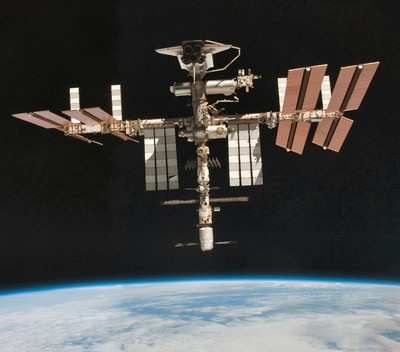Fri, Sep 14, 2012
Requests Proposals For Initial Contracts To Certify Commercial Crew Transportation Systems
NASA on Wednesday released a request for proposals for the first of two contract phases to certify commercially developed space systems in support of crewed missions to the International Space Station. Through these certification products contracts, NASA's Commercial Crew Program (CCP) will ensure commercial missions are held to the agency's safety requirements and standards for human space transportation system missions to the space station.

NASA's request for proposals outlines a two-phase approach in which the first phase awards will be made to multiple companies. The companies will provide data related to the development of their Crew Transportation System (CTS) design, including a spacecraft, launch vehicle, ground and mission operations and recovery. NASA plans to award up to $10 million to each company in early 2013 for the first phase.
The first phase will last about 15 months, during which companies will outline their strategies to meet the agency's required standards and safety requirements before a CTS could be approved to fly NASA astronauts to the space station. "We're looking forward to a strong U.S. industry response for this certification phase," said Ed Mango, NASA's CCP manager. "This is a major step in certifying transportation systems that can meet America's goal of transporting our astronauts to and from the space station."

At the conclusion of the first phase, the agency anticipates more than one company will be ready to compete for the second certification phase contract. The second phase will be open to any company with systems at the design maturity level of Phase 1. The second phase will include development, testing, evaluation and certification activities enabling NASA to assess and approve the CTS capability for performing space station missions in compliance with NASA requirements.
The objective of CCP is to facilitate the development of a U.S. commercial crew space transportation capability with the goal of achieving safe, reliable and cost-effective access to and from the space station and low Earth orbit. After the capability is matured and expected to be available to the government and other customers, NASA could contract to purchase commercial services to meet its station crew transportation needs.
More News
A Puff Of Smoke Came Out From The Top Of The Engine Cowling Followed By A Total Loss Of Engine Power On May 9, 2025, about 1020 mountain daylight time, an experimental amateur-buil>[...]
From 2022 (YouTube Edition): Jenny, I’ve Got Your Number... Among the magnificent antique aircraft on display at EAA’s AirVenture 2022 was a 1918 Curtiss Jenny painstak>[...]
Very High Frequency (VHF) The frequency band between 30 and 300 MHz. Portions of this band, 108 to 118 MHz, are used for certain NAVAIDs; 118 to 136 MHz are used for civil air/grou>[...]
“From approximately November 2021 through January 2022, Britton-Harr, acting on behalf of AeroVanti, entered into lease-purchase agreements for five Piaggio-manufactured airc>[...]
Microburst A small downburst with outbursts of damaging winds extending 2.5 miles or less. In spite of its small horizontal scale, an intense microburst could induce wind speeds as>[...]
 NTSB Prelim: Lee Aviation LLC JA30 SuperStol
NTSB Prelim: Lee Aviation LLC JA30 SuperStol Classic Aero-TV: Curtiss Jenny Build Wows AirVenture Crowds
Classic Aero-TV: Curtiss Jenny Build Wows AirVenture Crowds ANN's Daily Aero-Term (05.30.25): Very High Frequency (VHF)
ANN's Daily Aero-Term (05.30.25): Very High Frequency (VHF) Aero-News: Quote of the Day (05.30.25)
Aero-News: Quote of the Day (05.30.25) ANN's Daily Aero-Term (05.31.25): Microburst
ANN's Daily Aero-Term (05.31.25): Microburst




